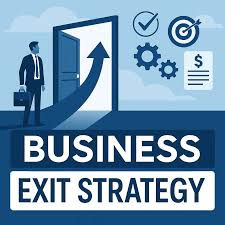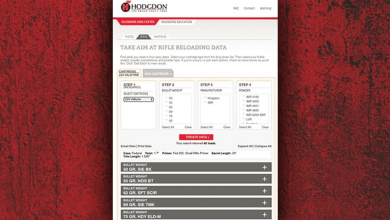Avoiding the Earnout Trap: Protecting Founders in Tech Exits

When a SaaS founder sells their company, the deal structure often sounds too good to be true. The buyer offers a high valuation, but part of that number is tied to future performance, usually called an earnout. On paper, it looks like a win. In reality, it can turn into a nightmare.
An earnout is a portion of the sale price the seller receives only if the business meets specific targets after closing, usually revenue or profit milestones. It’s supposed to align incentives between buyer and seller. But in practice, earnouts often create tension, conflict, and lawsuits. For founders who have already built and sold their business, the last thing they want is to spend the next two years arguing about accounting adjustments and missed targets.
Let’s look at why earnouts can be so risky, how to spot red flags early, and what founders can do to negotiate cleaner, safer deals.
- Why Earnouts Exist
From the buyer’s perspective, an earnout reduces risk. It ensures the business performs as promised and that key people stay on board. In industries like SaaS or digital services, where growth rates and churn rates can swing widely, earnouts are especially common.
But there’s a hidden imbalance here. Once the deal closes, the seller no longer controls how the business operates. The buyer decides the budget, marketing spend, staffing levels, and pricing. Even small operational changes can affect whether the earnout targets are met.
For example, imagine a buyer merges your SaaS company into a larger platform. They cut marketing costs to save money, and sales slow down. The buyer blames the market. You blame the decision. The result? The earnout isn’t paid, and your leverage is gone.
- Common Problems with Earnouts
Earnouts often fail for one simple reason: control doesn’t match responsibility. The seller’s payout depends on the company’s future results, but they no longer have the power to ensure those results.
Here are some of the most common issues that derail earnouts:
- Unclear definitions: “Revenue” or “EBITDA” can mean different things depending on accounting methods. Buyers may adjust financial statements to reduce the earnout payout.
- Integration challenges: After acquisition, systems and teams are merged. This can distort performance metrics or slow growth.
- Shifting priorities: The buyer may redirect resources toward new initiatives, even if it hurts the acquired company’s short-term results.
- Disputes over measurement: Without clear reporting rights, sellers can’t verify performance or challenge the buyer’s calculations.
These disputes are so common that some M&A attorneys joke that “earnouts are litigation waiting to happen.”
- Protecting Yourself in Negotiation
Fortunately, there are practical ways for founders to reduce the risk. The first is to negotiate for more cash at closing. Even if it means accepting a slightly lower headline price, the peace of mind and certainty are worth it.
If the buyer insists on an earnout, focus on these key protections:
- Simplify the formula. Use clear, objective metrics—for example, total revenue rather than EBITDA.
- Set achievable targets. Negotiate benchmarks that reflect realistic growth, not aggressive projections.
- Secure access to information. Include the right to review financial records and confirm calculations.
- Control the timeline. Limit the earnout period to 12–18 months. The longer it lasts, the greater the risk of disputes.
- Avoid “all or nothing” payouts. Push for partial payments if targets are partially met.
- Get legal review early. A business broker or M&A attorney can help identify vague or one-sided language before it’s too late.
Most importantly, remember that an earnout is not a bonus — it’s a deferred payment of your sale price. Treat it as such.
- The Safer Alternative: Competitive Bidding
One of the best ways to avoid earnouts altogether is to create competition among buyers. When multiple qualified buyers are interested, they’re more likely to offer strong cash-at-close terms instead of contingent structures.
This is where working with an experienced business broker can make all the difference. A professional broker knows how to manage a confidential sale process, qualify serious buyers, and leverage competition to your advantage.
If you’re considering selling your SaaS or service-based business, it’s worth reading more about how professional representation can help you secure multiple above-market offers. You can learn more at David Jacobs Business Broker, where business owners get honest, data-driven advice on valuations, deal structure, and buyer strategy.
- The Emotional Cost of Earnouts
Beyond the legal and financial risks, earnouts can also take an emotional toll. Founders often feel trapped, frustrated, or second-guessed by their new corporate owners. Instead of celebrating their exit, they find themselves reliving the stress of running the business — but without control or equity upside.
Walking away with certainty, even if the total number is smaller, can be far healthier in the long run. Liquidity gives freedom — to rest, invest, start something new, or enjoy life outside of constant KPIs and board meetings.
For a deeper dive into deal structures and how to secure the strongest outcome in your exit, explore this guide on structuring your business sale for maximum value.
Conclusion
Earnouts may look appealing on paper, but they often shift risk onto the seller and lead to disputes that can drag on for years. The best protection is to negotiate for clear terms, short timelines, and as much cash at close as possible.
Selling your company should be the reward for years of hard work, not the beginning of a new battle over performance metrics you can’t control.

Source: Avoiding the Earnout Trap: Protecting Founders in Tech Exits



